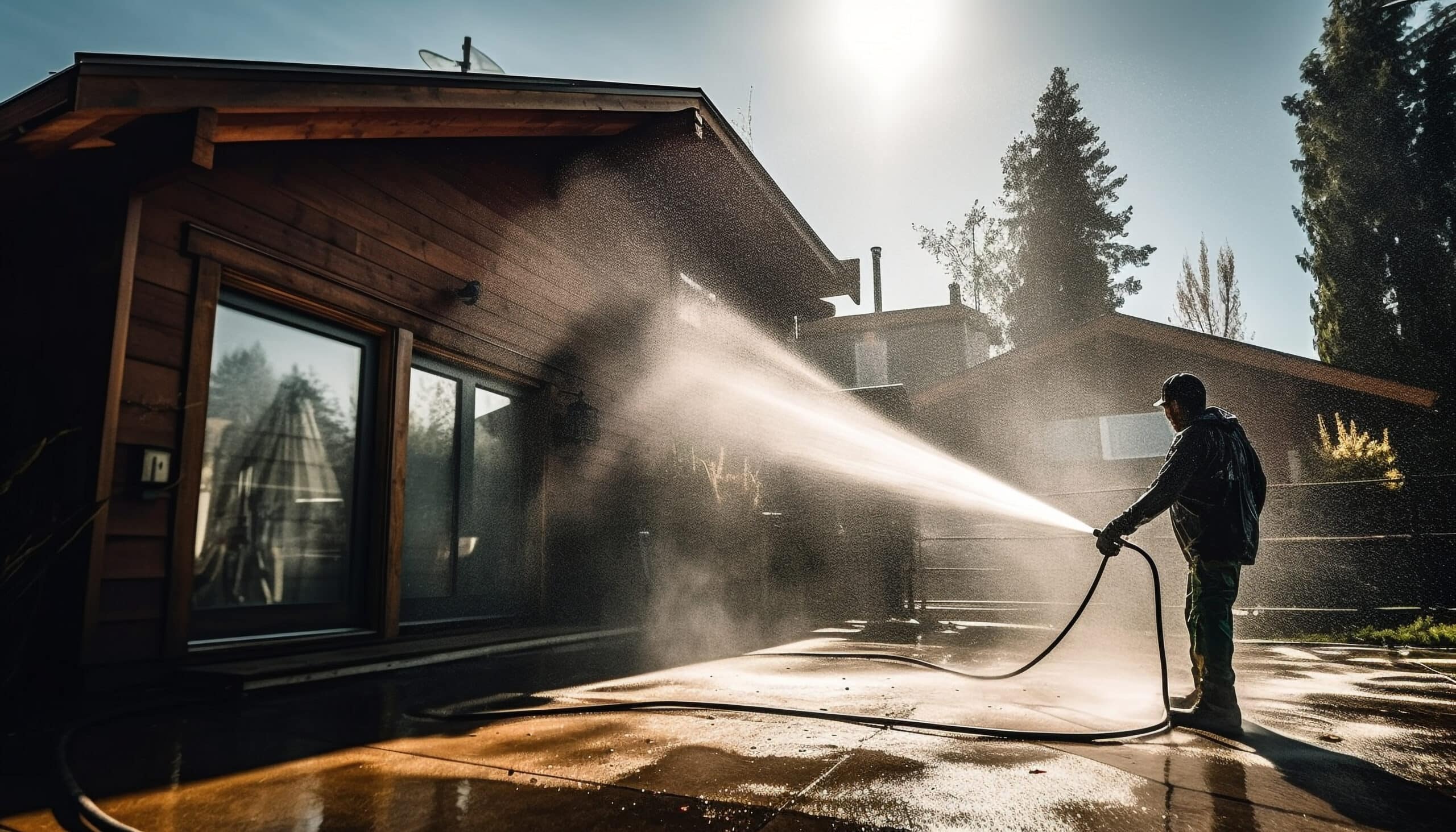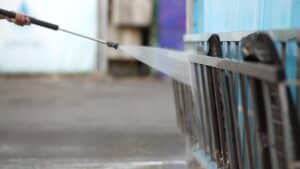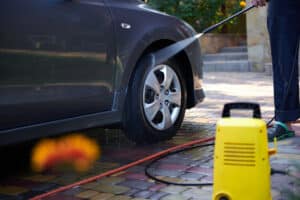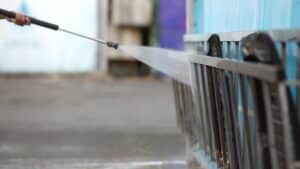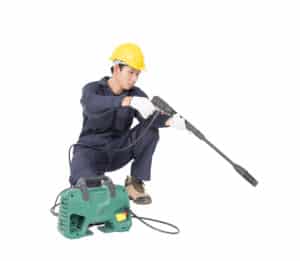How to Choose the Right Pressure Washer for Your Home
Key Takeaways
- PSI (Pounds per Square Inch) measures the water pressure needed to remove stains, with higher PSI suitable for tougher cleaning tasks.
- GPM (Gallons Per Minute) measures the water flow and determines the pressure washer’s cleaning capacity.
- Cleaning Units (CU) is a measure of the pressure washer’s cleaning speed, calculated by multiplying PSI by GPM, and can be used to compare different models.
When it comes to cleaning outdoor surfaces, a pressure washer can be a valuable tool for homeowners. But with so many options available, how do you choose the right pressure washer for your home? In this article, we will discuss the key factors to consider and provide recommendations based on expert opinions.
Factors to Consider
1. PSI (Pounds per Square Inch):
PSI measures the water pressure needed to remove stains. The stronger the bond, the higher PSI you’ll need. A pressure washer with higher PSI is suitable for tougher cleaning tasks, such as removing deep-seated dirt or grime. However, if you primarily plan to use the pressure washer for lighter cleaning, a lower PSI may be sufficient.
2. GPM (Gallons Per Minute):
GPM measures the water flow and determines how much surface area the pressure washer can clean in a minute. A higher GPM means a larger cleaning capacity. If you have large areas to clean, such as driveways or decks, a pressure washer with a higher GPM can save you time and effort.
3. Cleaning Units (CU):
Cleaning Units is a measure of the pressure washer’s cleaning speed and is calculated by multiplying PSI by GPM. The higher the CU, the faster and more efficient the pressure washer is. It’s a useful metric to compare different models and determine their cleaning power.
4. Water Temperature:
Hot or warm water can be more effective for certain cleaning tasks, such as removing grease or oil stains. However, not all pressure washers are built for hot water use. If you require hot water cleaning, make sure to choose a pressure washer specifically designed for it.
5. Electric vs Gas-Powered:
There are two main types of pressure washers: electric and gas-powered. Electric pressure washers are simpler to use, lighter, and quieter. They are suitable for regular home use and are more environmentally friendly. On the other hand, gas-powered pressure washers are more powerful and durable, making them suitable for heavy-duty cleaning tasks or professional use. However, they tend to be louder and require more maintenance.
6. Type of Projects:
Consider the type of projects you plan to use the pressure washer for. If you only need it for light periodic maintenance, a consumer-grade pressure washer will suffice. These models are affordable and suitable for DIY enthusiasts. If you require a pressure washer for more extensive cleaning or professional use, semi-pro or commercial/industrial models may be more appropriate. These models are built with professional-grade materials and are designed for frequent and heavy use.
7. Features and Accessories:
Consider the features, accessories, and customization options available for different pressure washer models. Some models may come with adjustable nozzles, detergent tanks, or hose reels, which can enhance the cleaning experience and make tasks easier and more efficient.
8. Maintenance and Best Practices:
Before making a purchase, it’s important to familiarize yourself with the pressure washer’s maintenance requirements and best practices. Reading the FAQs and maintenance guides provided by the manufacturer will ensure that you can properly care for your pressure washer and extend its lifespan.
Recommended Pressure Washers for Home Use
Based on expert opinions and reviews, here are some of the top-rated pressure washers for residential use:
- Ryobi 2,300 PSI Electric Pressure Washer
- Stihl RE 110 PLUS Electric Pressure Washer
- Sun Joe 2,030 Max Pressure Washer
- Sun Joe SPX3000-XT1 XTREAM Pressure Washer
- Generac 2900 PSI Speedwash Pressure Washer
- Greenworks Pro 3,000 PSI Electric Pressure Washer
- Craftsman V20 1,500 PSI Pressure Washer
These pressure washers have received positive reviews for their performance, reliability, and overall value for money. However, it’s important to consider your specific needs and preferences before making a final decision.
Conclusion
Choosing the right pressure washer for your home requires careful consideration of factors such as PSI, GPM, CU, water temperature, power source, and the type of projects you plan to undertake. By evaluating these factors and reviewing expert recommendations, you can find a pressure washer that meets your specific needs and ensures effective and efficient cleaning of your outdoor surfaces.
Related Websites:
FAQs:
Q: What are the different types of pressure washers available?
There are various types of pressure washers available, including gas-powered and electric-powered options. Gas-powered pressure washers provide greater mobility and higher pressure, making them ideal for heavy-duty tasks. Electric-powered pressure washers are more suitable for smaller jobs and offer easier maintenance.
Q: How do pressure washer PSI and GPM ratings affect cleaning performance?
PSI (pounds per square inch) refers to the pressure output, while GPM (gallons per minute) indicates the water flow rate. Higher PSI and GPM ratings result in more powerful cleaning performance, making it easier to remove tough dirt and grime.
Q: What features should I look for in a pressure washer?
Adjustable pressure settings and nozzle options are essential features to consider. Different nozzle types allow for various spray patterns, suited for different cleaning tasks. Additional features like detergent tanks and onboard storage can provide added convenience.
Q: What factors should I consider when evaluating the durability and quality of a pressure washer?
When assessing durability and quality, consider factors such as construction materials, warranty period, and customer reviews. It is advisable to purchase from reputable brands or manufacturers known for producing reliable pressure washers.
Q: What safety precautions should I take while using a pressure washer?
While operating a pressure washer, it is important to wear protective gear such as goggles and gloves, maintain a safe distance from surfaces, and avoid spraying directly at people, animals, or delicate objects. Additionally, always read the manufacturer’s manual and follow safety guidelines.

